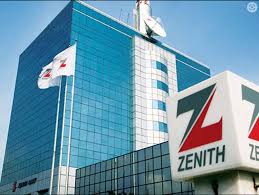Zenith Bank Plc has announced plans to fully exit the Central Bank of Nigeria’s (CBN) regulatory forbearance programme by June 30, 2025. This was revealed in a statement sent to the Nigerian Exchange Limited on Wednesday, June 12, and signed by the bank’s Company Secretary, Mr. Michael Otu.
Zenith Bank is one of several financial institutions currently under CBN’s regulatory forbearance. The CBN had previously imposed restrictions on some banks, including a temporary freeze on dividend payments, bonuses, and new investments in foreign subsidiaries. These measures were linked to breaches in the Single Obligor Limit (SOL) and other exposures.
According to Zenith Bank, the SOL exposure it currently has is related to only one obligor. The bank expressed confidence that it would resolve the issue and bring the exposure within regulatory limits by June 30, 2025. The lender also confirmed that other credit facilities under forbearance involve only two customers and that it has already made significant provisions for them.
“In addition to our capital raising initiatives, we have successfully surpassed the new regulatory capital requirement of ₦500 billion,” the statement read. “The Bank’s exposure under the SOL forbearance relates solely to a single obligor. We are confident that this exposure will be brought within the applicable regulatory limit on or before 30 June 2025.”
The bank added that it is taking comprehensive steps to ensure full provisioning on all affected credit facilities before the deadline. It stressed that once this is achieved, it will no longer be under any CBN forbearance arrangement.
“Upon completion, the Bank will no longer be under any forbearance arrangements in this regard. The Bank expects to have exited all CBN forbearance arrangements by the end of the first half of 2025,” the statement continued.
Zenith Bank also reassured shareholders that, barring any unforeseen developments, it would meet the necessary conditions to resume dividend payments within the current financial year. This comes as a relief to investors, many of whom have been concerned about the impact of regulatory restrictions on bank profitability and shareholder returns.
The CBN, in a separate statement signed by its acting Director of Corporate Communications, Mrs. Hakama Sidi Ali, clarified that only a few banks were affected by the capital restrictions. She explained that the temporary restrictions were part of broader efforts to help banks retain earnings, strengthen capital bases, and meet new regulatory requirements.
“The measures announced apply only to a limited number of banks,” the CBN stated. “These include temporary restrictions on capital distributions, such as dividends and bonuses, to support retention of internally generated funds and bolster capital adequacy. All affected banks have been formally notified and remain under close supervisory engagement.”
Earlier this year, the CBN introduced a new minimum capital requirement of ₦500 billion for commercial banks with international licences. Banks with national and regional licences were also directed to raise their capital bases to ₦200 billion and ₦50 billion respectively.
Following the directive, several banks launched capital raising initiatives to comply with the new rules before the March 2026 deadline. Zenith Bank’s successful capital raise and planned exit from forbearance is seen by analysts as a major step in the bank’s efforts to maintain financial stability and investor confidence.
In the wake of these developments, the Nigerian stock market saw mixed reactions. Market analysts noted a dip in investor confidence in the banking sector after the initial announcement of the CBN restrictions. However, banks like Zenith Bank that are actively resolving regulatory issues are expected to regain momentum.
Zenith Bank, one of Nigeria’s leading financial institutions, has consistently ranked high in profitability and asset base. Its latest update could signal growing stability in the sector, especially as more banks take steps to meet the new capital standards.
